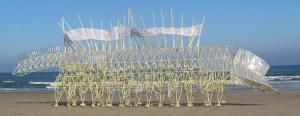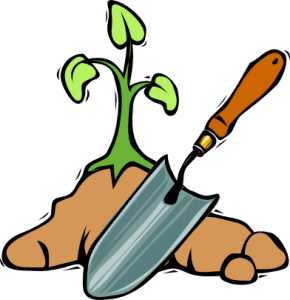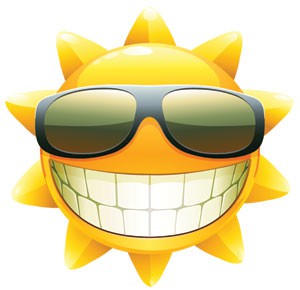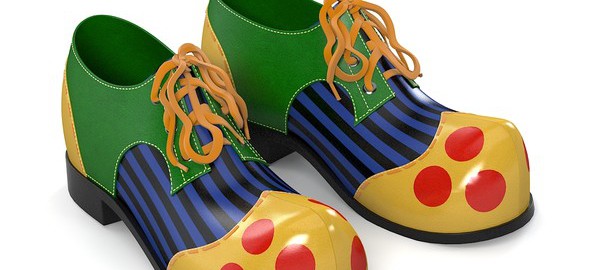 Artist Theo Jansen demonstrates the amazingly lifelike kinetic sculptures he builds from plastic tubes and lemonade bottles. His creatures are designed to move – and even survive – on their own.
Artist Theo Jansen demonstrates the amazingly lifelike kinetic sculptures he builds from plastic tubes and lemonade bottles. His creatures are designed to move – and even survive – on their own.
Spark your thinking!
1. Set up your language Full STEAM Ahead recording page: #1: Strandbeests
2. Read this quote from Theo Jansen. “Every spring I go to the beach with a new beast. During the summer I do all kinds of experiments with the wind, sand and water. In the fall I grew a bit wiser about how these beasts can survive the circumstances on the beach. At that point I declare them extinct and they go to the bone yard.”
3. On your recording page, write about what you think a Strandbeest is like.
3. Watch this video. and gather more information.
4. Set your timer for 3 minutes. On your recording page explain a Strandbeest to someone who has not seen one before.
5. Watch this TED talk: Theo Jansen: My creations, a new form of life. On your recording page record 5 takeaways from the talk.
6. Visit Theo Jansen’s website. Click on “Strandbeest” and then “Genealogy” in the menu to explore the photo gallery. In detail, choose one of the structures to describe on your recording page.
7. Write about what you you learned. How does what Mr. Jansen create relate to Science, Technology, Engineering, Art, and Math (STEAM)?
8. Share your Full STEAM Ahead recording page and visual with your teacher/EY coordinator.







 Sensory language includes words or phrases that connect to the five senses: sight, sound, smell, taste, and touch. It creates vivid mental images and engages the reader’s mind on multiple levels.
Sensory language includes words or phrases that connect to the five senses: sight, sound, smell, taste, and touch. It creates vivid mental images and engages the reader’s mind on multiple levels.